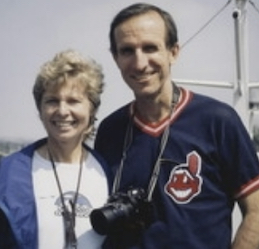August 8
Tom Brazaitis

On this date in 1940, Tom Brazaitis was born in Cleveland, Ohio. He attended John Carroll University on a basketball scholarship in 1962, where he became captain of the basketball team as well as sports editor of the student newspaper, The Carroll News. Brazaitis worked as a political journalist for the Cleveland Plain Dealer from 1971 until 2002, becoming senior editor in 1998. He was chief of the newspaper’s Washington bureau for 19 years, covering President Nixon’s impeachment hearings.
He wrote a syndicated column for over 20 years that was published in numerous papers. He married political journalist Eleanor Clift in 1989, and the couple collaborated on two books, War Without Bloodshed (1997) and Madam President: Shattering the Last Glass Ceiling (2000).
In a 2008 speech given by Clift at the 31st annual national FFRF convention, Clift described him as “a card-carrying member of the Freedom From Religion Foundation.” He died at age 64 of kidney cancer in Washington, D.C. His battle with cancer was detailed in Clift’s 2008 book Two Weeks of Life: A Memoir of Love, Death and Politics. (D. 2005)
“Tom was a fallen-away Catholic who in the last years of his life proudly embraced atheism. And he did not flinch those last few months.”
— Eleanor Clift, speech to the 31st annual FFRF convention in 2008
